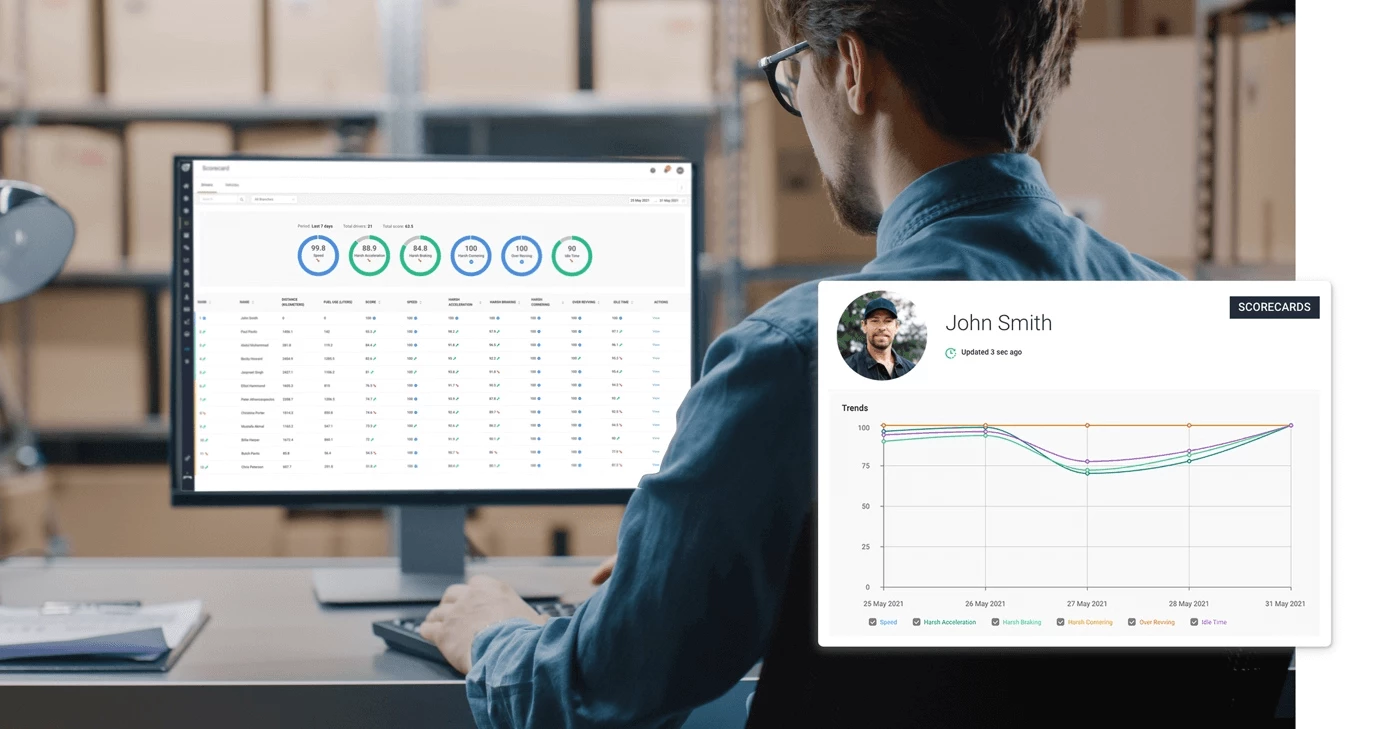Key Takeaways
Driver Scorecard is a feature on TN360 that analyses the data captured by your telematics devices and provides unique insight into driver performance. From speed and idle time, through to acceleration and braking, drivers are ranked to help you identify high risk drivers and discover opportunities for improvement.
WHAT IS SCORECARDS
Whilst Driver Scorecard enables businesses to measure driver performance and run fleet wide benchmarking, it's also often used to help implement a Driver Recognition, or Rewards scheme. By using factors including speed, acceleration, braking, cornering, revving and idle time, the system ranks drivers based on their performance. This allows fleet managers to praise their drivers for their improved performance, and encourages an excellent road safety culture internally throughout a business.
Since the tool is highly flexible and users can easily set metric thresholds that align with their business objectives, the scorecards quite literally show you who has improved, who hasn’t, and provides the detail to support driver training programmes or recognition schemes. The solution factors in every trip undertaken by a driver and displays distance traveled, fuel used, overall score and individual metric score.
WHAT ARE THE KEY FEATURES?
The highly flexible tool has a wide range of features, including:
- Ability to set the threshold for the performance metrics
- Dashboard showing fleet wide and individual scores
- Individual driver scorecard showing trend and fleet/branch benchmarks
- Colour-coded performance indicators
- View scorecards for drivers or vehicles

HOW CAN SCORECARDS HELP YOUR BUSINESS
Driver Scorecard provides the insights you need to help improve your business and the benefits are tangible:
- Training - with real-time insight into driver performance, you can instantly see where each driver can make improvements. With real data, you can provide corrective training and coaching in the areas that make a difference.
- Efficiency - with better on-road performance, business efficiency can continue to improve through reduced fuel and maintenance costs, and by reducing vehicle downtime caused by accidents.
- Maintenance - with insight into how each of your vehicles is being operated you can see the areas where your vehicles are being used harshly and align maintenance programs to reduce unplanned downtime.
- Cost reduction - better driving helps you to reduce costs by minimising fuel consumption and maintenance costs. Improved driving behaviour can also lead to a better insurance claims history and premium reductions.
- Asset ROI - vehicles are valuable assets and by improving driver behaviour you can extend their lifecycle and reduce vehicle replacement costs.


